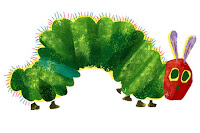That's probably because of the word's origins, in Greek theater, where a story has an unhappy ending, often because of the main character's (tragic) flaw. As Wikipedia explains, it is "a form of drama based on human suffering that invokes an accompanying catharsis or pleasure [?] in audiences." The Greek word τραγῳδία itself means, literally, "goat song," perhaps referring to the ritual sacrifice of such an animal.
We need a better word for the awfulness that unexpected, unexplainable, soul-shocking deaths or other "tragedies" bring to humans, on a regular basis.
 |
| As for Asian languages, glory be, who knows? |
And it also turns out, the answer to my question is no, at least in the European lexicon. The only departure from some variation of the word tragedy, whether in Albanian, Basque, Czech, Dutch, Estonian, Finnish—you get my drift—was Icelandic: harmleikur. Which I am now desperate to learn the etymology of. Maybe it's the word I'm seeking! Even Hebrew and Turkish use variations of the Greek word.
So I struck out on tragedy, but that made me, now that I've discovered this great website, want to double-check on my favorite words for multilingual expression: caterpillar, butterfly, lizard, and spider. Because check it out:
caterpillar (English)
vemje (Albanian)
Beldar (Basque)
eruga (Catalan)
housenka (Czech)
röövik (Estonian)
toukka (Finnish)
chenille (French)
Raupe (German)
hernyó (Hungarian)
bolb (Irish)
bruco (Italian)
kāpurs (Latvian)
vikšras (Lithuanian)
gąsienica (Polish)
omidă (Romanian)
lindysyn (Welsh)
How did they come up with so many different words? Oh, maybe very early people had much more truck with caterpillars than with abstract concepts like tragedy? At least insofar as one felt compelled to talk about it.
I just adore all those words, each its own little universe of meaning.
For butterfly you get flutur, leptir, motýl, sommerfugl, vlinder, liblikas, perhonen, papillon, bolboreta, Schmetterling, pillangó, féileacán, tauriņs, peteliškẻ, farfett, mariposa, fjāril, pili pala (same and different languages than above). (I am leaving out those in the Cyrillic alphabet, which add further spice.) (If you care to know which word is which language, go to the link above. Welsh appears in all my lists, I'll say that up front.)
And lizard? Harducë, musker, gušter, llangardaix, firben, hagedis, sisalik, lisko, lagarto, Eidechse, gyík, eđla, lucertola, ķirzaka, driežas, jaszczurka, șopårlă, ōdla, madfall. Madfall! (There's the Welsh for ya.)
And finally—if you're still with me, you find languages and words just as infinitely fascinating as I do—spider: merimangë, Armiama, pauk, edderkop, āmblik, hämähäkki, Spinne, kónguló, damhán alla, zirneklis, voras, najakot, pălanjen, araña, and pry cop (Welsh again).
This is the sort of thing that makes me so happy. Our ingenuity and delight with language, with communication, with the natural world, with trying to understand and share. And it makes sense that creatures that crawl or creep or fly would get labeled extemporaneously, without having to wait on what the Greeks thought. (The Greek for each of the above words, by the way is: κάμπια, πεταλούδα, σαύρα [as in dinosaura], and αράχνη [as in arachnid, as in the Spanish araña]— also quite different).
 |
| Eurasian wryneck |
Okay. I had fun with this. It tickled my obsessive bone. If you've come with me this far, thanks! I hope you had fun too.





1 comment:
I looked up "albatross"! By the way, I love the imagery you chose for this post.
Post a Comment